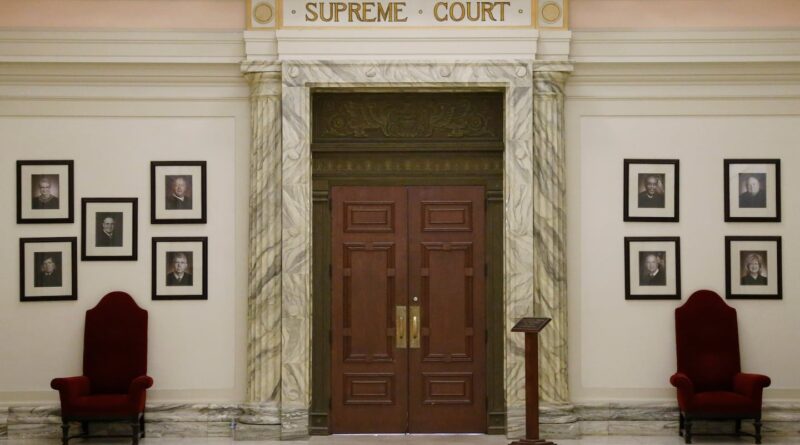Oklahoma encourages private groups to start charter schools – as long as they’re not religious – The Boston Globe
That’s the question at the heart of a legal battle pitting an Oklahoma attorney general against its charter school board, as the fate of St. Isidore is still hanging. The state’s highest court recently ruled in favor of the attorney general and against the Catholic school. The United States Supreme Court is now being asked to take up the case and reverse it. It should do so to uphold religious freedom under the First Amendment. And because, as Lincoln knew, a fake letter can’t change the truth.
This is the background.
Last year the Catholic Archdiocese of Oklahoma City and the Diocese of Tulsa established St. Isidore and applied for certification as a charter school under Oklahoma law. Many such schools exist in the district. Charter schools, which are exempt from regulation and oversight by local school committees, must meet basic health and safety standards. It must also be academically free and open to all students. But their most important purpose is to provide a “variety of educational choices”—a range of different teaching methods, curriculum, priorities, and principles from which parents can choose. choose the right one for their children.
So, there is a charter school in Oklahoma that emphasizes bilingual Spanish/English education. One offers an education focused on computer science and technology. The third includes an international approach, with staff from 18 countries. However, one takes the arts very seriously and teaches dance, music and theater. Yet another immerses students in Cherokee language, history and culture.
The work of St. Isidore? To provide a solid Catholic education, with a curriculum that builds “excellence, rigor, and creativity.” Catholic schools have an excellent record of success in the United States. So with all the reasons to trust the expectations of St. Isidore’s success, the Oklahoma charter school board accepted his request.
What caused the riot.
Attorney General Gentner Drummond soon sued the charter board, demanding that the St. Isidore and the state were disqualified because Oklahoma law requires all charter schools to be “nondenominational” — that is, not affiliated with a religious institution. But the board reasoned that denying the school’s request because of the school’s religious identity would be a violation of the First Amendment, which prohibits government officials from restricting the “free use” of religion.
In successive rulings in recent decades, the United States Supreme Court has repeatedly affirmed that the government cannot prevent religious schools, parents or students from benefiting the community simply because of their religion. It is now clear that if the government provides public funding for education in the form of vouchers, parents can use those vouchers to pay for religious school education. As recently as two years ago, the Supreme Court clarified that point, ruling that Maine’s tuition assistance program could not be limited to students in those “affluent” schools. non-religious.
But Drummond argued before the Oklahoma Supreme Court that public funds spent on charter schools are different because state law calls them “public schools.” That means every charter school must be seen as a government entity. Also, government agencies may not advocate religion.
A majority of Oklahoma judges have accepted that argument. But in a strong dissent, Judge Dana Kuehn brought up Lincoln’s point: St. Isidore – a Catholic school created and run by the church – is not a “public school” just because state law calls it so. The whole point of the charter school law is to enable private organizations of every description to provide unique, experimental, or unique options that the state does not provide. That does not mean that such schools are state actors in the eyes of the Constitution any more than a church-run boarding school becomes a state actor simply because it contracts with the state to provide human services.
Last week the Oklahoma charter school board asked the Supreme Court to hear the case and clarify again that the First Amendment does not allow the state to discriminate against a private charter school simply because of its religion. For parents who want their children to attend charter schools that emphasize computer science or Cherokee culture or the performing arts, Oklahoma says yes. For parents who want their children to attend a charter school that teaches Catholic values, Oklahoma says no. Such anti-religious hatred was common in America. But the Constitution forbids it, although not everyone got the message.
To subscribe to Arguable, Jeff Jacoby’s weekly newsletter, visit globe.com/arguable.
Jeff Jacoby can be reached at jeff.jacoby@globe.com. Follow him to X @jeff_jacoby.
#Oklahoma #encourages #private #groups #start #charter #schools #long #theyre #religious #Boston #Globe
